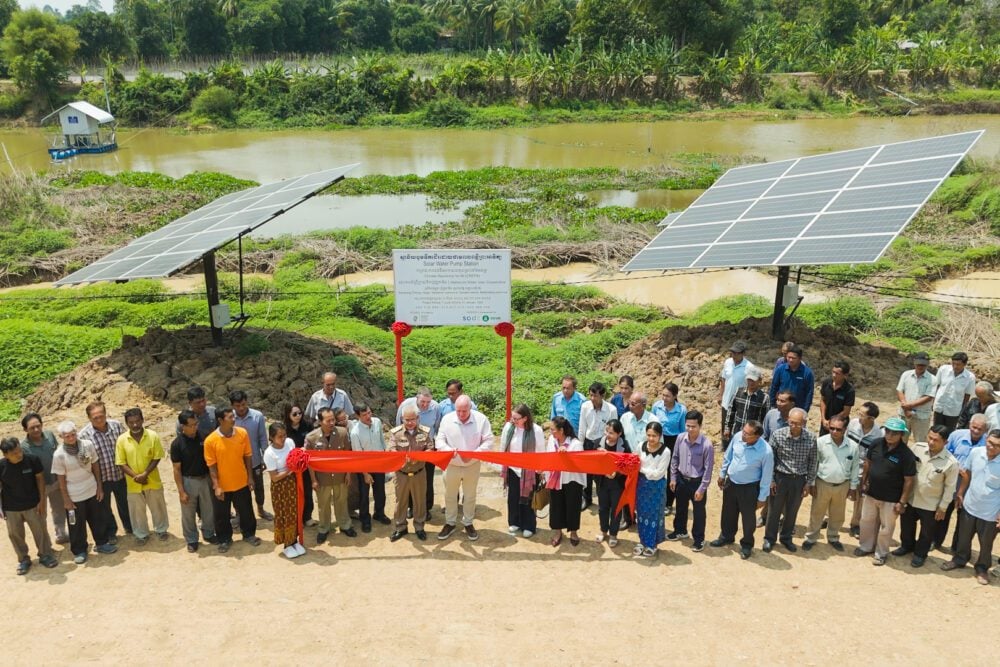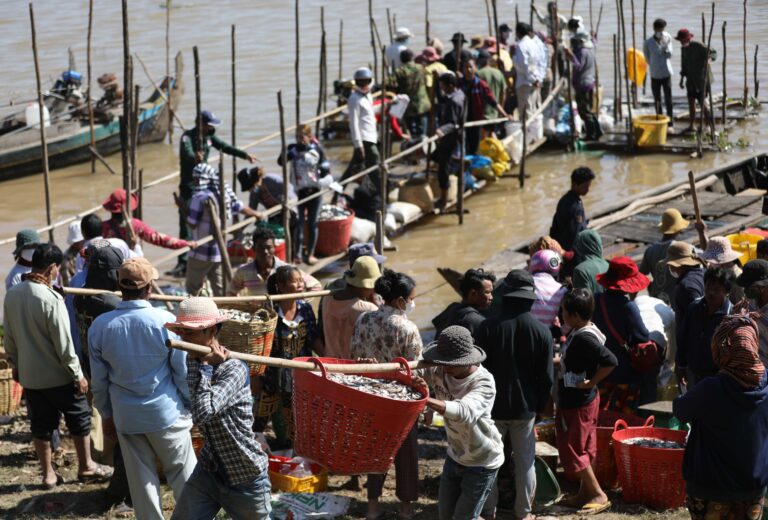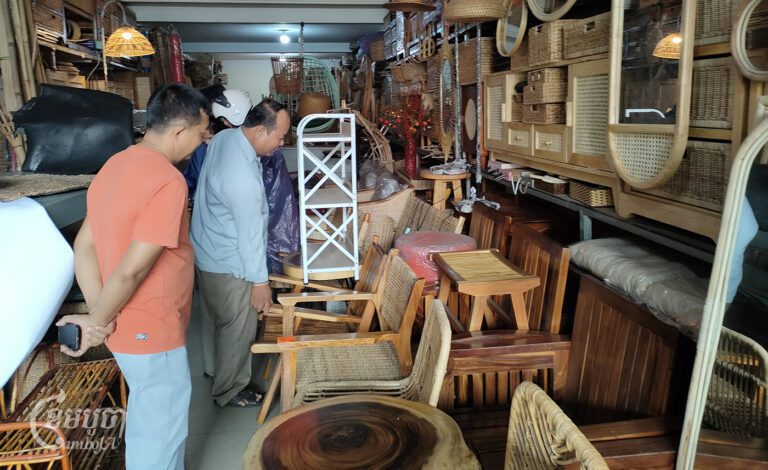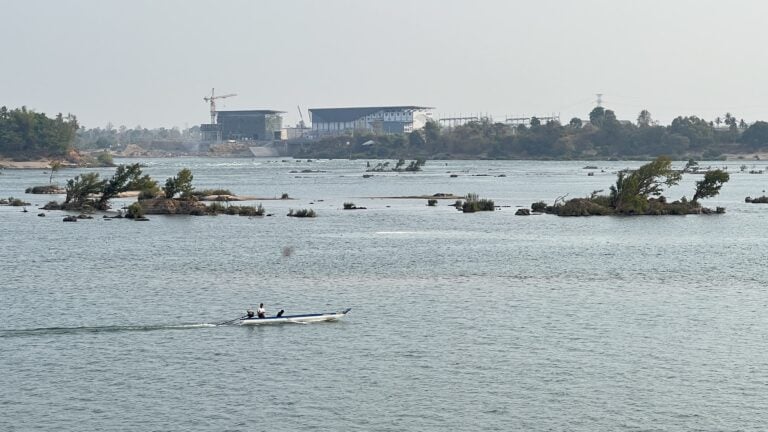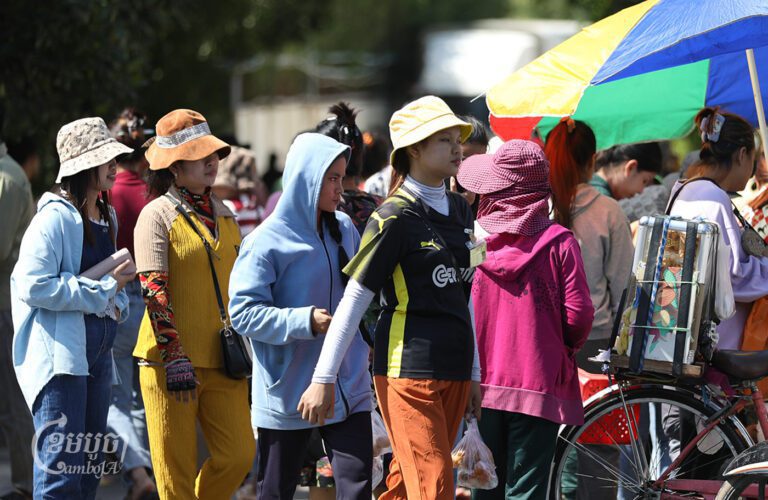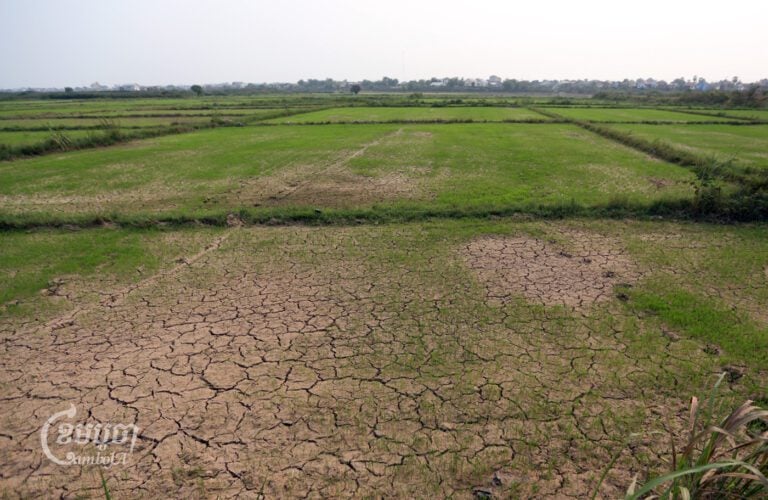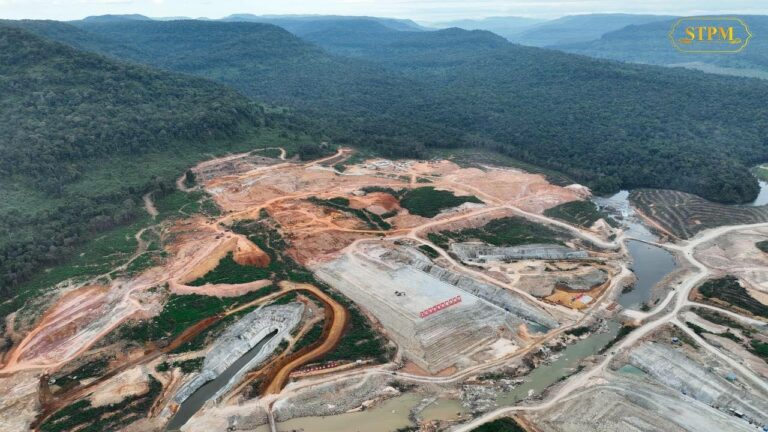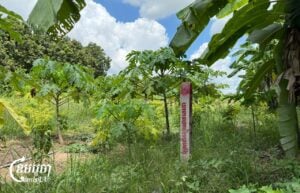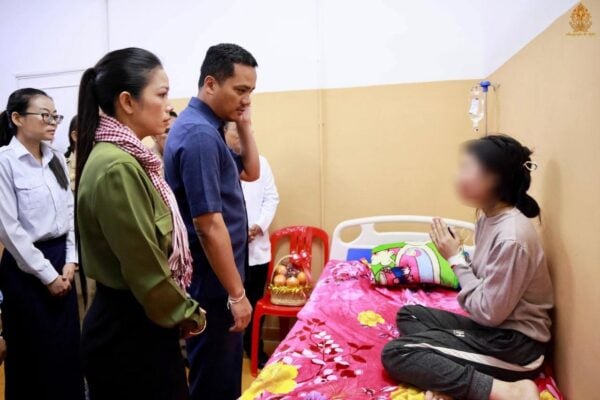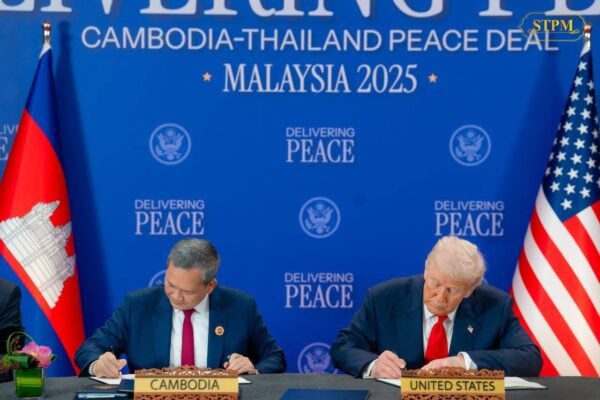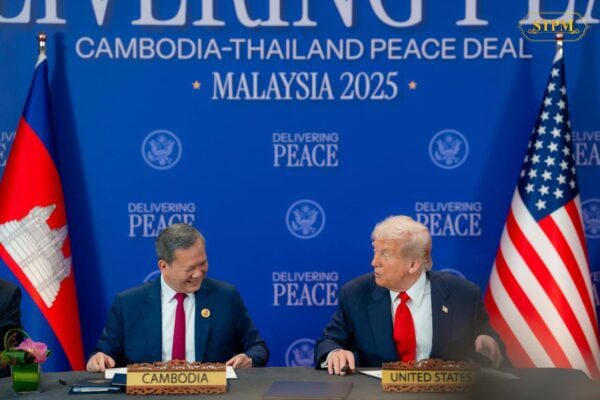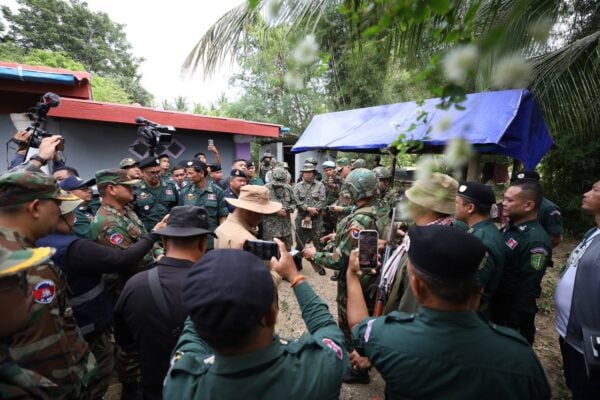A new solar-powered water pumping station has eased crop cultivation for some 220 farming families in Wattamim commune, Battambang province, as they are now able to irrigate their fields affordably and plant multiple times a year.
The initiative reduces irrigation costs, provides a reliable water source, and strengthens farmers’ ability to adapt to climate change. Owing to lower expenses and increased harvest, the solar-powered station has helped improve their livelihoods and build long-term climate resilience in the community.
Local Water User Cooperative head Im Svang told CamboJA News that prior to the implementation of the station, commune farmers used water pumps to irrigate their rice and other crops. Due to the lack of water for irrigation, farmers could not plant more than twice per year.
With the installation of the new irrigation system, farmers saw better results, reduced their budget for pumping water, and were able to plant rice more frequently.
“Previously, after rice was harvested in the rainy season, some people would migrate to other districts near the border to find work. They would only return when the rainy season starts again to plant rice. Now, with the solar system, some farmers can plant rice two to three times, depending on the type of rice,” Svang said.
These problems were resolved thanks to the Climate Resilience for All (CREFA) project, funded by the Irish government via Oxfam and implemented by SOGE, which installed a solar-powered water pumping station in their community. Farmers also contributed some funds to complete the construction of the station.
Following the construction, Svang observed that 228 farming families benefited largely as it helped to irrigate 234 hectares of land, enabling them to cultivate rice two to three times a year. Farmers also reduced irrigation costs from $150 to $75 per rice harvest.
“It not only improved their livelihoods but also reduced environmental impacts and increased their climate resilience in the agricultural sector,” said Svang.
Meanwhile, he called for an additional irrigation system to the solar irrigation system to store enough water for people to use in the area, as the existing canals are not able to meet the demand.
He said the water supplied by the solar-powered irrigation system is still in short supply, as farmers’ demand has exceeded the plan, given that the area they cultivated is now over 400 hectares. The present system can only irrigate about 200 hectares.
Farmer Khong Saray, 40, who lives in Ou Khchay village, told CamboJA News that the solar-powered water pumping station allows her to water her farm regularly and helps her save money. In the past, she spent a lot to buy water for her orange farm.
“I used to buy water to irrigate my farm. The seller charged $2.50 per hour, so if I need water for 10 hours for my farm, I end up spending a lot but now we pay less,” said Saray.
Although the new water pump station is helping farmers, she said more canals should be built in the middle of the village to aid other farmers who do not have access to the solar-powered station.
On March 17, Ireland’s Minister of State at the Department of Agriculture, Food and the Marine Noel Grealish TD, said his government has provided €800,000 ($868,000) in 2025 for climate programmes, implemented by Oxfam in Cambodia. It includes €84,000 ($91,000) given by the Irish Embassy in Hanoi for the solar-powered water pump to ensure year-round water supply for the local community.
According to a press release, the climate programs will support rural communities in northern Cambodia with climate-smart agriculture, renewable energy, climate resilience, and rural development. A program team will also work closely with the Cambodian government to develop and enhance climate policies.
In addition to the installation of the solar irrigation infrastructure, the project will also provide training for farmers on sustainable water management and use. “In Cambodia, smallholder farmers are the backbone of the agricultural sector and are central to its future. This solar project is a perfect example of an investment in technology – but it is also an investment in Cambodian farmers and in the future of sustainable agriculture,” Grealish said.
Phean Sophoan, National Director of Oxfam in Cambodia, said the solar water pumping station is a key initiative under the Climate Resilience for All (CREFA) project. It focuses on strengthening Cambodia’s climate resilience by transforming vulnerabilities into opportunities for sustainable development while also supporting climate change mitigation and adaptation efforts.
Agriculture plays a vital role in Cambodia, with rice being the primary and most well-known crop, especially in Battambang province, she said. However, climate change, irregular rainfall, inadequate infrastructure, water shortages, and high-water irrigation costs have posed significant challenges to rice cultivation. These difficulties have directly impacted the livelihoods of Cambodian farmers and their ability to sustain rice production.
To tackle these challenges, Oxfarm initiated the CREFA Project. One of its main activities is the installation of solar water pumping stations to help communities irrigate rice fields and other crops. The project’s first-year spanned from early 2024 to early 2025, during which multiple pumping stations were successfully built. The largest facility is in Battambang province, with additional stations installed in Siem Reap and Preah Vihear provinces.
“We acknowledge that the pumping station cannot solve all the challenges in Battambang but we hope it will ease some burden, especially for farmers in Wattamim commune. Over the next two to three years, we are optimistic that the community will expand its capacity to benefit more people,” said Sophoan.
She hopes that the government will continue to support the work against climate change. Addressing the challenge requires the collective effort of everyone, and success can only be achieved through the active participation of all stakeholders, she said.
During the launch of the water pumping station, Pheng Sithy, Deputy Governor of Battambang Province, said irregular rainfall, insufficient water supply, and rising costs of water pumping, presenting significant challenges to rice and crop production in recent years, was caused by climate change. These issues have directly impacted Battambang people’s livelihoods, particularly their ability to produce rice and other essential crops.
His provincial government has put an emphasis on the agricultural sector at every level, particularly in the promotion of sustainable practices. Our focus is on enhancing agricultural productivity and improving the livelihoods of farmers throughout the province.
Sithy said the solar water pumping station not only enhanced agricultural productivity but also supported the provincial government’s commitment to sustainable agricultural practices.
In late January 2025, hundreds of locals and rice farmers in Takeo province blocked National Road 2 with tractors and motorcycles, demanding government action on severe water shortages threatening their crops.
Officials blamed the water shortage in Takeo for over-cultivation of dry-season rice, a variety the government says is over-farmed nationwide as it put a strain on public canals which were under repair.


